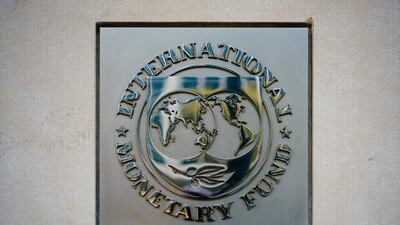A task force led by the International Monetary Fund, World Bank Group, World Health Organisation and the World Trade Organisation has launched a global database to identify gaps in the Covid-19 vaccine supply amid concerns about slow or delayed deliveries to developing countries.
The database and country-by-country dashboards on vaccines, therapeutics and diagnostics aims to focus international attention on the issue and mobilise action for delivering Covid-19 supplies to developing countries, the IMF said.
"It is critical to improve clarity and transparency around the evolving vaccine market, expected production volumes, delivery schedules, and pre-purchase options," the IMF said. "We call on manufacturers to accelerate delivery to developing countries and we call on advanced economies to scale-up near-term deliveries to developing countries."
In May, the IMF unveiled a $50 billion proposal to end the Covid-19 pandemic by vaccinating at least 40 per cent of the population in all countries by the end of 2021 and at least 60 per cent by the first half of 2022.
In July, the Washington-based lender downgraded its growth outlook for emerging markets and developing economies due to their uneven access to vaccines and the emergence of Covid-19 variants that are hindering the shape of a global economic recovery.
More than 4.06 billion doses have been administered across 180 countries – enough to fully vaccinate 26.5 per cent of the global population, according to data collected by Bloomberg. The latest rate was roughly 39.7 million doses a day.
However, the distribution has been largely uneven. Countries and regions with the highest incomes are getting vaccinated more than 30 times faster than those with the lowest, according to the Bloomberg data.
Equitable access to vaccines is critical for the global economic outlook. Uneven access to vaccines and the emergence of Covid-19 variants could derail the global economic recovery and wipe out $4.5 trillion cumulatively from global gross domestic output by 2025, the IMF said in July.
The IMF highlighted the urgency of providing more access to Covid-19 vaccines, tests and treatments to people in developing countries.
"In the area of vaccines, a key constraint is the acute and alarming shortage in the supply of doses to low and low-middle income countries, especially for the rest of 2021," it said. "We call on countries with advanced Covid-19 vaccination programmes to release as soon as possible as much of their contracted vaccine doses and options as possible to Covax, AVAT [African Vaccine Acquisition Trust] and low and low-middle income countries."
Rich nations are donors to the UN-backed Covax scheme to distribute vaccines around the world, but the facility faced shortfalls linked partly to the second wave of the pandemic in India.
The IMF expressed concern that vaccine delivery schedules and contracts for Covax, AVAT and low and middle-income countries are delayed or too slow, noting that less than 5 per cent of vaccine doses that were pre-purchased for these countries have been delivered.
The target is for at least 40 per cent of people in low and low-middle income countries to be vaccinated by the end of 2021, the IMF said. However, it estimates that less than 20 per cent of the necessary vaccines is currently scheduled for delivery to these countries, whether through Covax, AVAT, bilateral deals and dose-sharing agreements.
"We urge Covid-19 vaccine manufacturers to redouble their efforts to scale up production of vaccines specifically for these countries, and to ensure that the supply of doses to Covax and low and low-middle income countries takes precedence over the promotion of boosters and other activities," the IMF said.
The fund also called on governments to reduce or remove barriers to the export of vaccines and all materials involved in their production and deployment.
"We underscore the urgent need for all parties to address supply chain and trade bottlenecks for vaccines, testing, and therapeutics as well as all of the materials involved in their production and deployment," it said.
As per the IMF’s $50bn proposal to end the pandemic, and in line with the priorities set out by WHO, WTO, IMF and the World Bank, more than $35bn in grants are needed with only one third of this financed to date, it said.
The IMF welcomed a recent announcement by Covax and the World Bank to accelerate vaccine supplies for developing countries through a new financing scheme. It also noted that World Bank financing is now available to support the purchase and deployment of doses secured by both AVAT and Covax.


